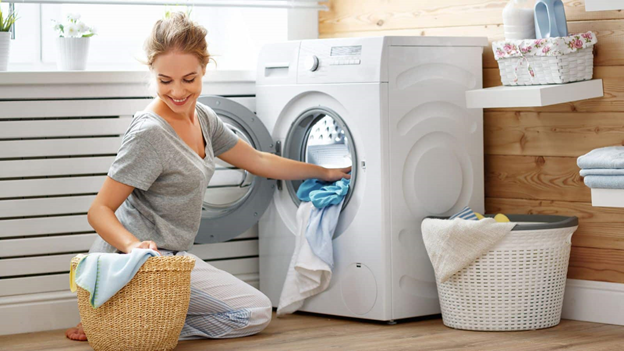
A washing machine is a crucial appliance in most households, significantly simplifying the task of doing laundry. Like any appliance, to ensure it operates efficiently for the longest possible time, it requires regular maintenance. Here are nine essential tips to help you take care of your washing machine:
Understanding and Maintaining Your Washing Machine’s Agitator
The mandatory Whirpool agitator is a central spindle found in many top-loading washing machines, playing a pivotal role in the cleaning process by moving the laundry around during the wash cycle. It’s important to maintain the agitator to prevent it from wearing out or malfunctioning. To keep it in good working condition, remove any debris or strings that might get wrapped around it, which can impede movement or strain the motor. If your machine is equipped with a fabric softener dispenser at the top of the agitator, ensure it’s clean and free from residue build-up. Agitators can develop issues like becoming loose or noisy; if this happens, it might signal a need for tightening or replacing worn-out parts by a professional.
2. Keep the Machine Level
A washing machine that isn’t level can vibrate excessively, which can lead to damage to both the machine and your floors. Check to ensure your machine is perfectly level. If it’s not, adjust the machine’s legs until they are. Also, make sure the machine does not rock when you apply pressure to the corners.
3. Clean the Washer Regularly
Residue from detergent and fabric softeners can build up inside your washing machine over time, which might lead to unpleasant odors and potentially affect the machine’s efficiency. Run a cleaning cycle at least once a month with a specialized cleaner or with a DIY solution of vinegar and baking soda. Don’t forget to clean the detergent and fabric softener dispensers.
4. Prevent Overloading
While it might be tempting to load as many items as possible into your washing machine, overloading can cause significant damage. It puts extra strain on the motor, belts, and transmission, reducing the lifespan of your device. Refer to your machine’s manual to understand the ideal load size.
5. Use the Correct Type and Amount of Detergent
Using too much detergent or using the wrong type can lead to excess suds, which can affect the machine’s operation and even lead to leaks. High-efficiency (HE) washers especially require HE detergent. Follow the recommended detergent type and amount according to your washer’s specifications.
6. Check and Clean the Filters
Many washing machines have filters to catch debris. These can be located near the water supply lines (inlet filters) or in the washer pump. Check these filters periodically and clean them to ensure the water flows freely and to prevent clogging, which can cause your washer to work harder than necessary.
7. Inspect and Clean the Door Seal or Gasket
Especially important for front-load washers, the rubber door seal can accumulate moisture, leading to mold and bad odors. Check the seal regularly for any signs of wear or damage, such as cracks or tears, and replace it if necessary.
8. Don’t Ignore Small Problems
Often, what starts as a minor issue, such as a strange noise during the spin cycle or a slight leak, can quickly escalate into a major problem if left unattended. Ignoring these warning signs can lead to more significant damage and costly repairs. Regularly pay attention to how your machine operates and sounds. If you notice anything out of the ordinary, it’s better to address it immediately. Sometimes, a simple fix early on can prevent a major breakdown later.
9. Ensure Proper Usage of the Washing Machine
Understanding and adhering to the guidelines for your specific model of washing machine is vital for its maintenance. Different machines have varied capacities, functionalities, and requirements. For instance, mixing heavy items like rugs with general laundry can unbalance the drum and lead to damage. Similarly, washing waterproof or water-resistant materials can cause excessive suds and load imbalance.
By incorporating these additional practices into your washing machine maintenance routine, you help ensure the longevity, efficiency, and reliability of this essential household appliance. Consistent care and attention to detail can save you time, money, and the inconvenience of unexpected breakdowns, keeping your washing machine in top condition for years to come. By following these simple yet crucial maintenance tips, you can significantly extend the life of your washing machine, ensure it runs efficiently, and keep your clothes looking their best. Regular maintenance not only saves you from potential repairs but also helps in conserving energy and maintaining efficiency.






